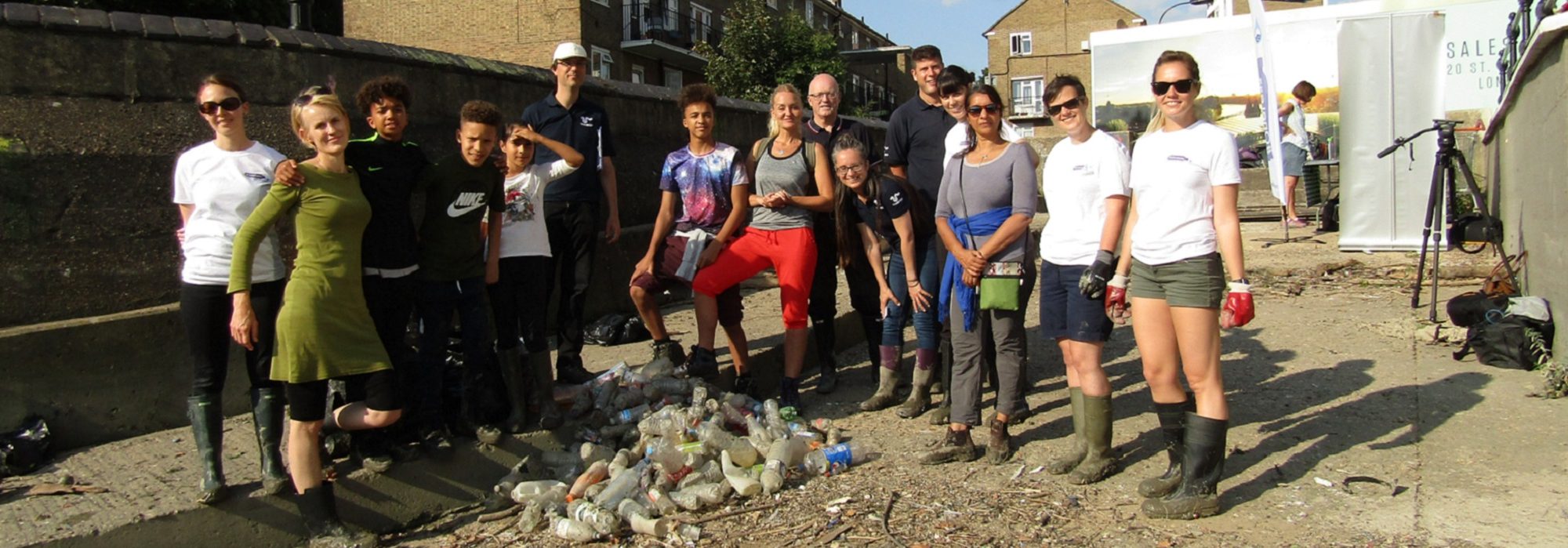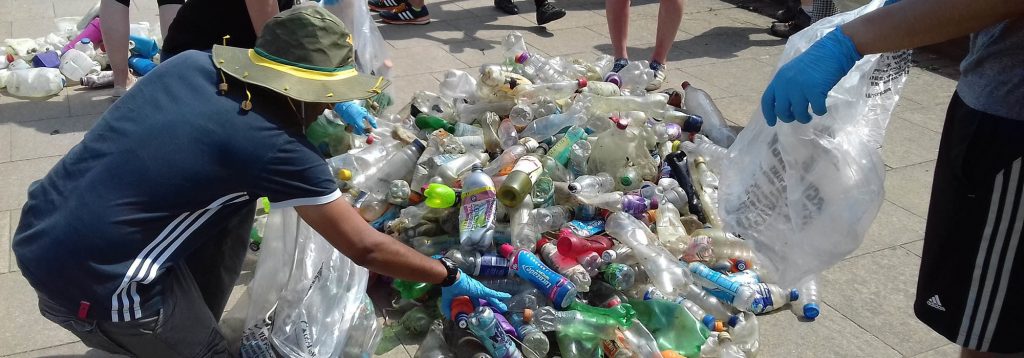Thames21 calls for a Deposit Return System for bottles
Thames21, a charity which works with communities to protect river environments, believes that a Deposit Return System (DRS) for bottles would be an effective way of reducing the huge volumes of single-use plastic bottles in the environment and in our rivers and oceans.
Thames21 calls for the Government to introduce a Deposit Return System, so that the United Kingdom would join the growing number of countries around the world that operate such a scheme successfully.
The evidence of the problem
As a result of data coming out of our Thames River Watch project, the charity has been looking into this issue in more depth and decided that a Deposit Return System would help to combat this problem.
Research from our Thames River Watch programme, collected in 36 litter surveys between 2014 and June 2016, showed that 74 per cent of approximately 33,000 pieces of litter washed up on the tidal Thames foreshores was food related packaging including cups and bottles.
The Thames River Watch project’s report using data to the end of 2016 shows that disposable drinks bottles and their lids account for 10% of all items found. In one study alone in 2016, 2,500 single use bottles were collected in one day by our Citizen Science volunteers working across 11 sites on the River Thames.
This evidence highlights the significant impact of plastic bottles on the Thames and therefore the benefits of a Deposit Return System for plastic bottles, putting us in agreement with many other environmental charities.
A Deposit Return System would be an effective mechanism in the battle to reduce riverine and marine litter, because it would spark a behaviour change among the public. Putting a price on a bottle gives it value and makes consumers far less likely to throw them away, which will lead to a reduction in litter. It would also lead to an increase in manufacturers reusing plastic bottles.
Reducing the huge quantity of plastic bottles littering the environment will, in turn, reduce the plastic rubbish contaminating our rivers and oceans endangering wildlife and alienating communities.
Successful examples of DRS
Deposit Return Systems work successfully in many countries such as Germany, Australia, Estonia, Norway and Sweden, and is being investigated by the Scottish Parliament.
In Germany, 98.5% of refillable bottles are returned by consumers.
In one town in Catalonia, Spain, a three-month pilot in 2013 resulted in a 91% return rate of items on which a deposit was charged. Catalonia is now moving ahead with plans to design a permanent system.
When the Canadian province of Ontario increased its Deposit Return System from only beer to include all alcohol, the return rates on aluminium cans jumped from 69% to 82%, because other items were now being returned, too.
In Sweden, recovery rates have reached above 80% since the introduction of Deposit Return Systems dating back to 1984.
In Finland, there are 1.7 billion cans plus plastic and glass bottles returned annually, enough to cover 1000 ha of land. Their return rate is 90%.
There has been a significant reduction in litter in US states which have Deposit Return Systems. Research shows that the amount of drinks containers has reduced by as much as 70-80%.
Conclusion
In conclusion, Thames21 believes that a Deposit Return System, for plastic bottles in particular, would significantly reduce the volume of plastic bottles found in our waterways and benefit the environment for wildlife.
One way you can show your support for the introduction of a Deposit Return System is to back the 38Degrees petition.

